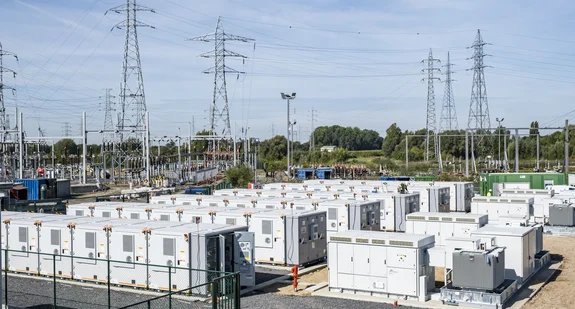How Battery Energy Storage Systems are Transforming Power Use
What is Energy Storage and Why Is It Important?
Battery Energy Storage Systems is the process of converting energy from sources like electricity into a form that can be stored and used in the future. With renewable energy becoming a larger part of the global energy mix, energy storage is crucial in overcoming the intermittent nature of renewable resources like solar and wind energy. Energy storage systems store excess energy produced when demand is low, making it available when demand is high or when production is unavailable due to weather conditions.
There are various energy storage technologies available today, including:
- Electrochemical storage (batteries)
- Mechanical storage (pumped hydro, compressed air, flywheels)
- Thermal storage (heating materials)
- Chemical storage (hydrogen)
While these technologies serve different purposes and are deployed across different scales, batteries represent one of the most scalable and flexible storage solutions. A home battery storage system can store as little as 10 kWh, while the same technology can be scaled up to store millions of kilowatt-hours for utility-scale applications.
How Do Battery Energy Storage Systems (BESS) Work?
Battery Energy Storage Systems (BESS) are transforming the way we manage energy by providing a simple and effective solution for energy storage. BESS capture energy from various sources, such as the electric grid, solar panels, or even wind turbines, and store it for later use.
When combined with renewable energy sources like solar and wind, BESS ensures a steady supply of power. Solar energy, for example, is produced during the day but is often not needed until later in the evening or at night. BESS stores excess energy generated by solar panels during the day and releases it when needed, ensuring power availability even when the sun isn’t shining.
The Role of Battery Energy Storage Systems in the Energy Transition
BESS plays a crucial role in the transition to renewable energy by mitigating the fluctuations that are inherent in renewable power generation. The sun doesn’t shine all day, and the wind doesn’t blow consistently, which can make energy generation unreliable without a way to store that energy for later use.
Battery storage solves this issue by allowing utilities, businesses, and homeowners to store renewable energy for use during periods of low generation or high demand. This makes energy storage systems, especially BESS, an essential part of any energy strategy, particularly those that rely on solar power.

Why Battery Energy Storage Systems is Essential for Modern Energy Systems
- Reliability: BESS ensures continuous power supply by storing energy during periods of excess and releasing it when needed.
- Cost Reduction: By reducing reliance on the grid, BESS can lower energy costs for both businesses and homeowners.
- Grid Stability: Large-scale BESS installations help stabilize the grid by absorbing excess energy and releasing it during peak demand, reducing strain on the electrical grid.
- Flexibility: BESS can deploy in a variety of sizes—from small, home-based units to large, utility-scale storage systems—providing scalable solutions for different energy needs.
How BESS Integrates with AI and Machine Learning
Modern Battery Energy Storage Systems are becoming even more intelligent through the integration of AI, machine learning, and data analytics. These technologies enable advanced energy management, optimizing the use of stored energy based on real-time demand and supply data. The AI-driven systems help predict energy consumption patterns, allowing for more efficient energy use and a better response to dips and peaks in demand.
This level of automation and intelligence makes BESS an important tool in combating climate change, as it provides a flexible way to balance energy consumption and reduce reliance on fossil fuels.
Benefits of Battery Energy Storage Systems (BESS)
- Support for Renewable Energy: BESS facilitates the adoption of renewable sources like solar and wind, helping to reduce carbon emissions.
- Lower Energy Costs: By storing energy during off-peak hours and using it during peak hours, BESS can lower electricity bills for both businesses and homes.
- Energy Independence: BESS allows users to reduce their reliance on the grid, which can be subject to outages and high costs.
- Improved Grid Stability: Large-scale BESS deployments can help stabilize grids, ensuring consistent energy delivery even during periods of high demand.
Conclusion
Energy storage, especially through Battery Energy Storage Systems (BESS), is key to unlocking a sustainable energy future. By integrating BESS with renewable energy sources like solar and wind, we can achieve more reliable, affordable, and clean power for homes, businesses, and entire regions. As technology advances and becomes more accessible, BESS will continue to play an essential role in shaping the future of energy use and carbon reduction.

